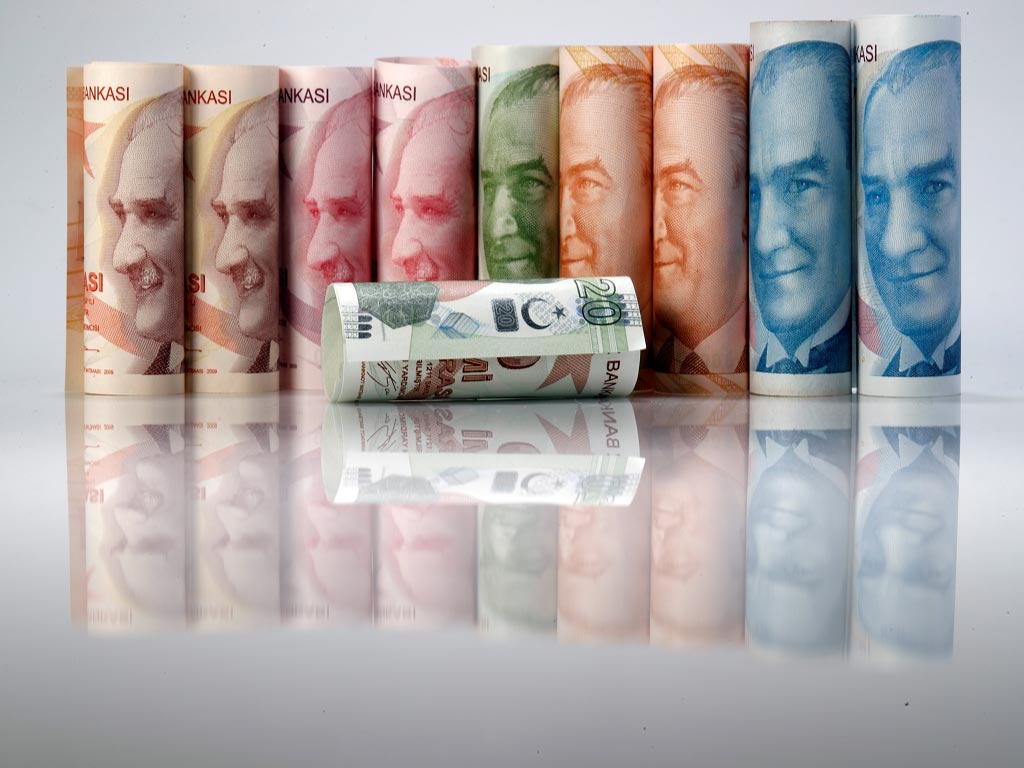Lira rebounds from record low, yuan pressured by trade spat

LONDON: The Turkish lira hit a record low on Thursday after President Tayyip Erdogan's latest comments on interest rates rattled investors, before rebounding, while China's yuan fell through a key level as a trade dispute with the United States simmered.
Turkish assets have taken a hammering this week following Erdogan's moves to cement his power under a powerful new executive presidency. He has installed his son-in-law as finance minister.
Erdogan's comments to a newspaper that he saw interest rates falling in the period ahead triggered a fresh bout of selling by investors already concerned about the central bank's inability to tame double-digit inflation in an overheating economy.
The lira weakened to a record low of 4.9767 against the dollar in overnight Asian trade before recovering to trade 1.7 percent firmer on the day.
But Turkish stocks tumbled 1.8 percent to their lowest level since April 2017. Turkish five-year credit default swaps rose to a near one-month high of 337 basis points and dollar bonds sold off further, with some issues losing as much as 0.7 cents.
Turkey's central bank will next meet on July 24 but investors fear political pressure will prevent it from taking action. Finance Minister Berat Albayrak said it was "unacceptable" for central bank independence to be the subject of speculation.
"As a house we are pretty negative about the changes in the (Turkish) government and very sceptical that the central bank will maintain a tight policy for as long as they need to," said Paul Fage, senior emerging markets strategist at TD Securities, adding that the timing of Erdogan's latest comments was "just awful".
TRADE WARS
MSCI's emerging equities benchmark index rose 0.1 percent , following steep losses in the previous session when U.S. President Donald Trump threatened to impose 10 percent tariffs on $200 billion worth of Chinese goods.
Chinese mainland stocks bounced over 2 percent after sliding 1.7 percent on Wednesday. Hong Kong stocks also gained 0.8 percent.
But China's yuan slipped through the key 6.7 per dollar level following the central bank's weakest fixing in nearly a year, and the biggest one-day percentage weakening of the midpoint rate since Jan. 9, 2017.
A weaker yuan is a double-edged sword for China because while it will make China's exports more competitive, it could also trigger capital outflows.
Beijing has accused Washington of bullying in the increasingly fractious trade row, and warned it will hit back. "It's not clear where the end-point is for these tit-for-tat tariffs - China will feel it has to make some sort of response," Fage said.
Other regional powers are growing increasingly concerned, with South Korea warning that the escalating trade spat could hit exports of its intermediary goods used to make home appliances and computers.
The won slipped 0.2 percent after the central bank kept rates unchanged as expected.
Other notable movers included India shares, which rose over 1 percent to hit a record high as optimism around corporate earnings boosted sentiment.
The rupee also firmed 0.2 percent ahead of key inflation data. A Reuters poll showed analysts expected it to have reached a near two-year high in June.
In emerging Europe, Budapest shares rose 0.5 percent and Polish stocks 0.4, reflecting the broad-based recovery. Currencies were mainly firmer against the euro, with the Polish zloty strengthening 0.4 percent.
The Polish central bank maintained its loose monetary policy stance at its meeting on Wednesday, as expected, saying it saw no reason to change rates until the end of 2020.
But Liam Carson, emerging Europe economist at Capital Economics, said Polish inflation was likely to rise above the central bank's 2.5 percent target range by early-2019, prompting a 25 bps rate hike in the first half of next year, the first since 2012.




















Comments
Comments are closed.